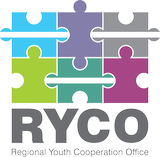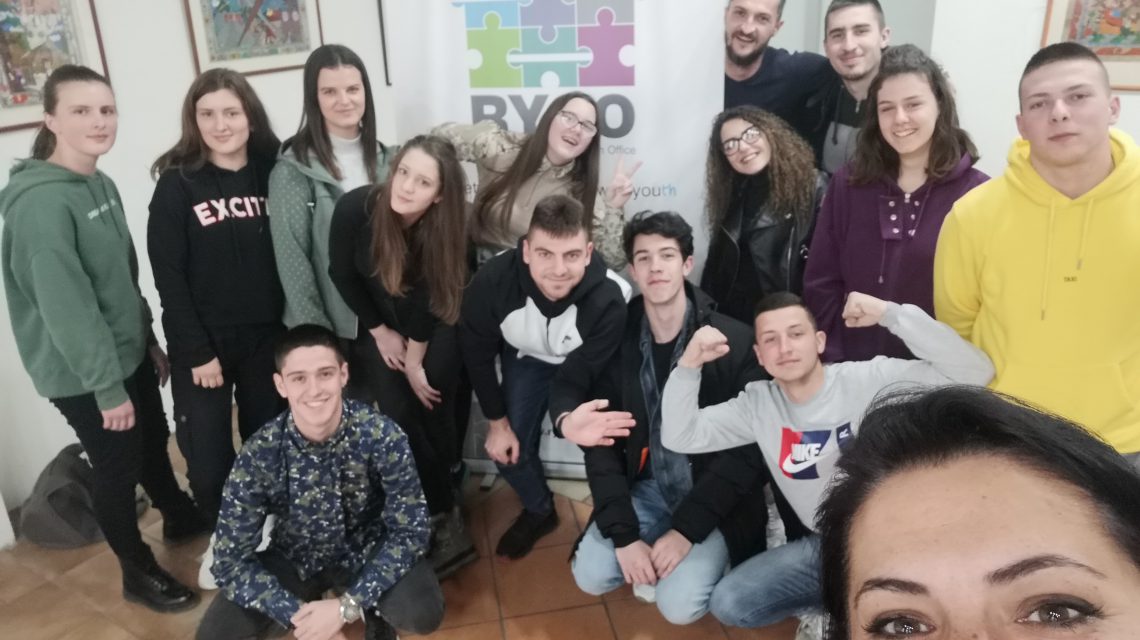What do young people in the Western Balkans think about the society they live in? With conflict in the not-so-distant past, peace and social cohesion are real issues present in their everyday lives.
Our just published regional study Shared Futures: Youth Perceptions on Peace in the Western Balkans, shares views from more than 5,400 young people aged 15-29 years from Albania, Bosnia and Herzegovina, Kosovo*, Montenegro, North Macedonia and Serbia. It highlights the voices of youth and their perceptions and experiences related to peace and social cohesion in their societies and in the wider Western Balkans region.
Six young writers from the region give voice to some of key messages emerging from the study.
FOCUSING ON THE FUTURE
A considerable proportion of young people in the region, ranging from 15 to 63 percent, say they are unwilling to forgive others for past deeds. There is a need to engage young people in constructive dialogue about the past and its effects on their current realities.
The armed conflicts that occurred in the Western Balkan region are still fresh in the collective memory. Dealing with the past is a difficult yet necessary step in the reconciliation process.
More attention should we placed on creating safe spaces for people to exchange ideas, perspectives and their experiences of the past and present. Starting conversations on how the armed conflicts and overall political tensions have impacted us would be the first step to reconciliation. Taking responsibility for wrongdoings, listening and empathising with others and acknowledging the damages caused and the damages experienced will help us all develop healthy and cooperative relationships among our societies, and thus a better future for all.
Agon Rexhepi, Albania
JOINT EFFORTS FOR A BRIGHTER FUTURE
Up to 53 percent of youth think the EU accession process is the most important factor in creating long-term peace and stability in the Western Balkans, although responses vary highly by ethnicity. A well-functioning democracy, teaching peace and tolerance, dialogue between leaders and economic prosperity were also seen as important factors for peace and stability.
Western Balkan societies have faced various challenges and problems in recent decades. From high unemployment, poor economic and political governance to lack of democratic principles only made worse by manipulations of corruption and division. Regional cooperation is recognized as the key to the success of all of our societies. “The past” has not been a topic that connects Western Balkan societies, and the fear and hate speech from those wounds are becoming weapons of corrupt systems. What we do have in common though is the commitment to full EU membership. Governments and leaders should work together with the youth of the region to actively solve the problems that are common to the region, so that together they can one day be the driving force in Europe.
Mahir Sijamija, Bosnia and Herzegovina
TRUST, RELATIONSHIPS AND INTERACTIONS AMONG PEOPLE
Trust, relationships and interactions among people, across societal divisions such as identity or other social constructs, are important aspects of peace and social cohesion. The region’s divisions and conflicts have not left young people entirely untouched, but for the most part, young people express openness to friendship with members of different groups. Intergroup contact has often been used as a tool for improving intergroup trust and relations, but the quality of intergroup relationships not only trumps quantity; the two may possibly have different consequences. Having mere acquaintances from other communities can be counter-productive in that it could in some cases facilitate more negative attitudes towards others.
We are not born hateful – we are raised so. A tiny seed planted, nourished by certain teachers and books with hostility woven into them, and then kept alive by media until we’re little more than wizened sacks of disdain.
To forgive and forget only exists in fairytales. I cannot tell Kosovar people’s grandparents to forgive and forget when some were betrayed by neighbours with whom they drank their morning coffee. I cannot tell my mother’s colleague to forgive and forget when she witnessed the killing of 40 family members in her own house. I will never know their pain, but I acknowledge and hold space for it. Some consider hate the only thing that life has left them with. But hate is not hereditary. Let’s teach children and students better. Speak from love and empathy. Teach them history not in a way that creates more enemies, but to teach compassion. Past bloodshed cannot be erased, but future gore can be prevented.
Amina Kaja, Kosovo
YOUNG PEOPLE CAN CHANGE THE WORLD
Young people are central actors in the building of sustainably peaceful societies in the Western Balkans. They share a common cultural heritage and mostly view one another with trust and curiosity, although at times with caution. Most are confident that their generation is a positive force in their society and are optimistic about being able to resolve some of the persistent challenges in the region.
We live on a planet with almost eight billion people. The internet and easy access to travelling has created a global village; so today, when various customs, traditions and societies are only a few steps away, understanding and tolerance among cultures are more important than ever. Although we face similar challenges, we all have the same goal – to live a happy life. But to do so, we must develop a strong society with progressive ideas and refuse to engage in hatred, intolerance, and indifference that is so widely spread in the Western Balkans.
Every individual has the power to impact their society, but young people are the only ones who can break the vicious cycle of division and let go of the ghosts of the past. We must use our voices to spread empathy and tolerance, to make positive changes, to exchange knowledge. Let our differences be the bridge that connects two sides, not the abyss between them.
Nikoleta Radevic, Montenegro
HATE SPEECH IS NOT FREEDOM OF SPEECH
Hate speech online or offline was the most reported form of violence or discrimination, with an average of 12 percent of young people reporting it across the region. Discrimination based on age, political affiliation or ethnicity were also frequently reported. Out of those who had experienced violence or discrimination, only 17 percent reported this to anyone and just 58 percent felt that reporting had brought any positive results. This indicates a need for better mechanisms for youth to report experiences of discrimination and violence and for institutions and authorities to address these issues.
The internet means “freedom of speech” for most people, in a way that they can enjoy this right immeasurably without consequences. Thus, it has brought countless opportunities to spread hate speech. Blogs, online portals and social media platforms are full of hate speech and discrimination based on ethnicity, political views, religion, etc. While the spaces provided by online media are often mediated and monitored, the same cannot be said for social media and different forums.
There is a need to monitor cases of hate speech and discrimination. But we also need better and more efficient ways to report such problems, and for authorities to appropriately address them. We must raise awareness that hate speech online is as much a crime as hate speech in the real world, with similar consequences on youth relations in this already conflict-ridden region.
Emilija Bozinovska, North Macedonia
THE VOICE OF OUR GENERATION
Trust between government and society is a critical aspect of peace and social cohesion. Across the region, young people’s satisfaction with their governance systems and institutions is relatively low, while satisfaction in civil society and youth organizations is ambivalent although similarly low. Repairing the broken connections and trust between young people and decision-makers is an essential task.
Considering that in our region there are groups of people who undermine peace and thus bring our societies back to conflict, it is extremely important what kind of official stance stakeholders towards these groups have. Are they building their power on subservience to such groups or are they determined to build peace and stability regardless of the number of votes that promoters of conflict-mongering ideas bring?
Declaratively, everyone is in favor of peace, but the facts show that for previous generations, past wounds haven’t healed. This keeps societies from progressing, and thanks to this we have been spinning in a circle for thirty years. Fortunately, there are young adults who want to build better communities out of those they grew up in. Only when decision-makers show a willingness to listen to our opinions, when public institutions show readiness to stand behind these ideas, provide them with support and start cooperation, only then will we know that our societies have moved forward.
Nikolina Bonic, Serbia
~~~
Shared Futures: Youth Perceptions on Peace in the Western Balkans was conducted by the United Nations Development Programme (UNDP), in collaboration with the United Nations Population Fund (UNFPA) and the Regional Youth Cooperation Office (RYCO). It was developed through a uniquely participatory research process which involved a youth advisory group, representing youth across the Western Balkans region, in the design of the study framework and the analysis of its findings. The study is based on quantitative and qualitative data collected through a regional survey and several focus group discussions between December 2020 and April 2021.
_______________
*For the UN, all references to Kosovo shall be understood to be in the context of Security Council Resolution 1244 (1999). For RYCO, this designation is without prejudice to positions on status, and is in line with Security Council Resolution 1244 and the ICJ Opinion on the Kosovo Declaration of Independence.



